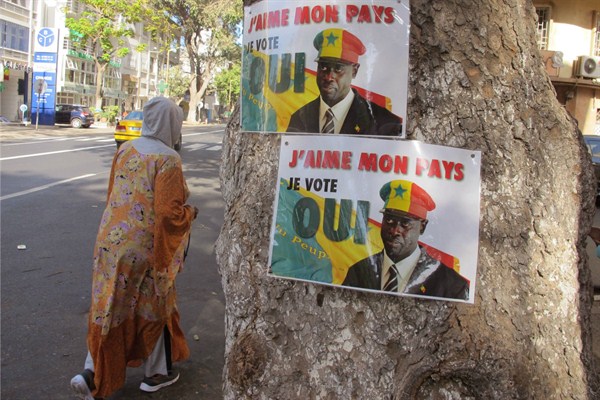March 20, a day some analysts dubbed “Africa’s Super Sunday,” included a referendum in Senegal on the question of whether to reduce presidential terms from seven to five years. By the next day, both the press and the government were projecting a sweeping victory for the “yes” camp. The divisions surrounding the vote may seem strange at first: President Macky Sall and his supporters favored the reduction, while opposition parties opposed it. Sall emerges from the referendum battle politically strengthened. He can put a nagging controversy behind him, and he positions himself to approach the next election on his own terms.
The issue of presidential term limits looms large across Africa, but it has unusual parameters in Senegal. Elsewhere, the issue centers on the question of term limits, while in Senegal there has been controversy about both limits and length. Sall’s predecessor, Abdoulaye Wade, was elected to a seven-year term in 2000, but a new constitution in 2001 reduced the length of subsequent presidential terms to five years. Wade was re-elected in 2007, and the following year Senegal’s National Assembly approved a constitutional amendment reverting to seven-year presidential terms. Wade then went back on an earlier pledge and ran again in 2012, claiming that the constitutionally imposed two-term limit, passed in 2001, did not apply to his first term. That controversy was settled at the ballot box rather than in the courts, with Sall’s victory, but the issue of term length has lingered in Senegal.
The debate about the country’s current constitutional referendum turns in large part on the question of what Sall promised citizens when he was first elected in 2012, and whether this referendum fulfills it. As for what was said on the campaign trail and in his inaugural address in 2012, many observers understand his promise to have been that he would reduce the presidential term, beginning with his own if elected, from seven to five years. Sall made this promise in a specific domestic context in which Senegalese were angry at Wade’s manipulation of term limits and an international one in which Western governments were looking to praise and reward African leaders who respected two-term limits.

